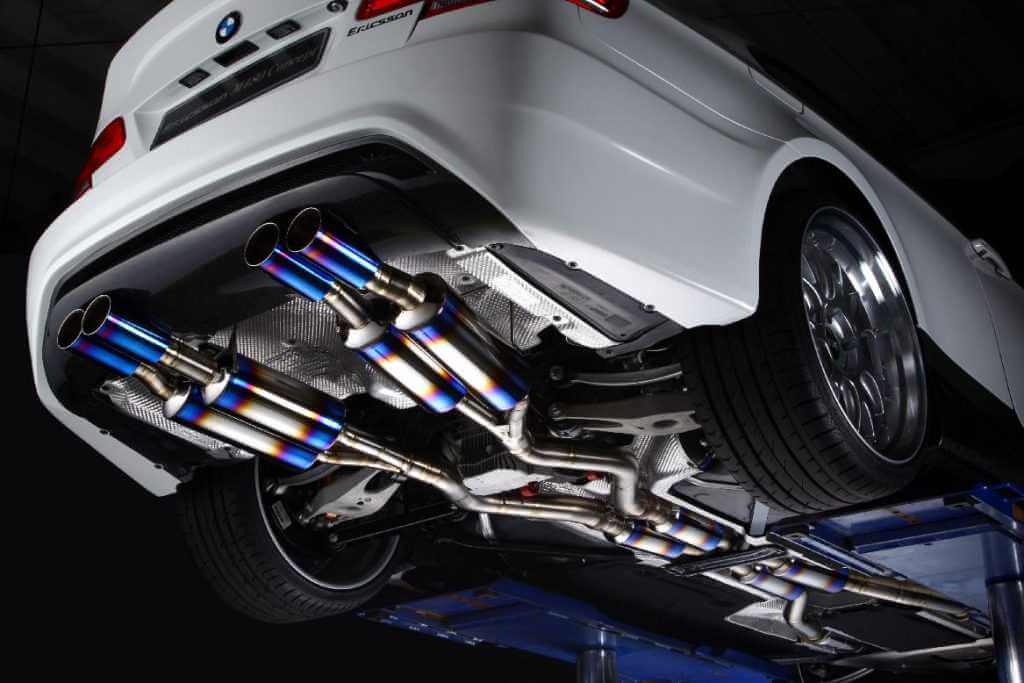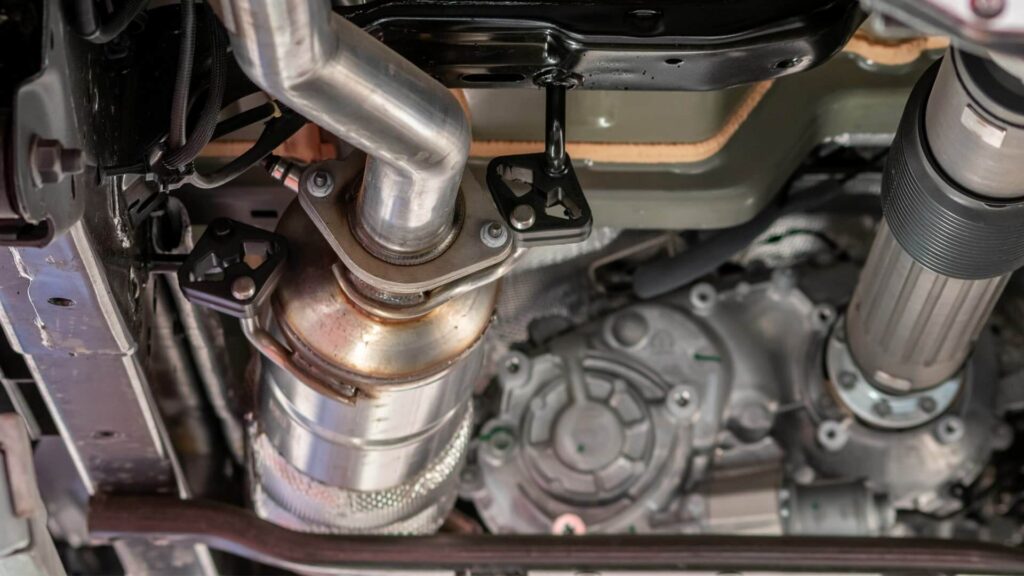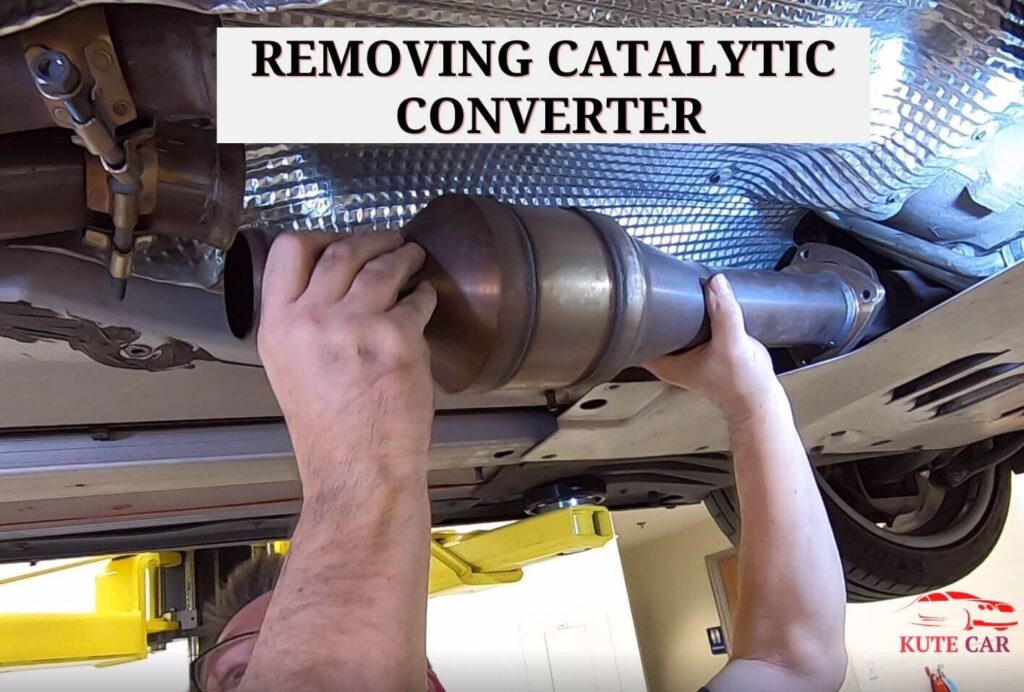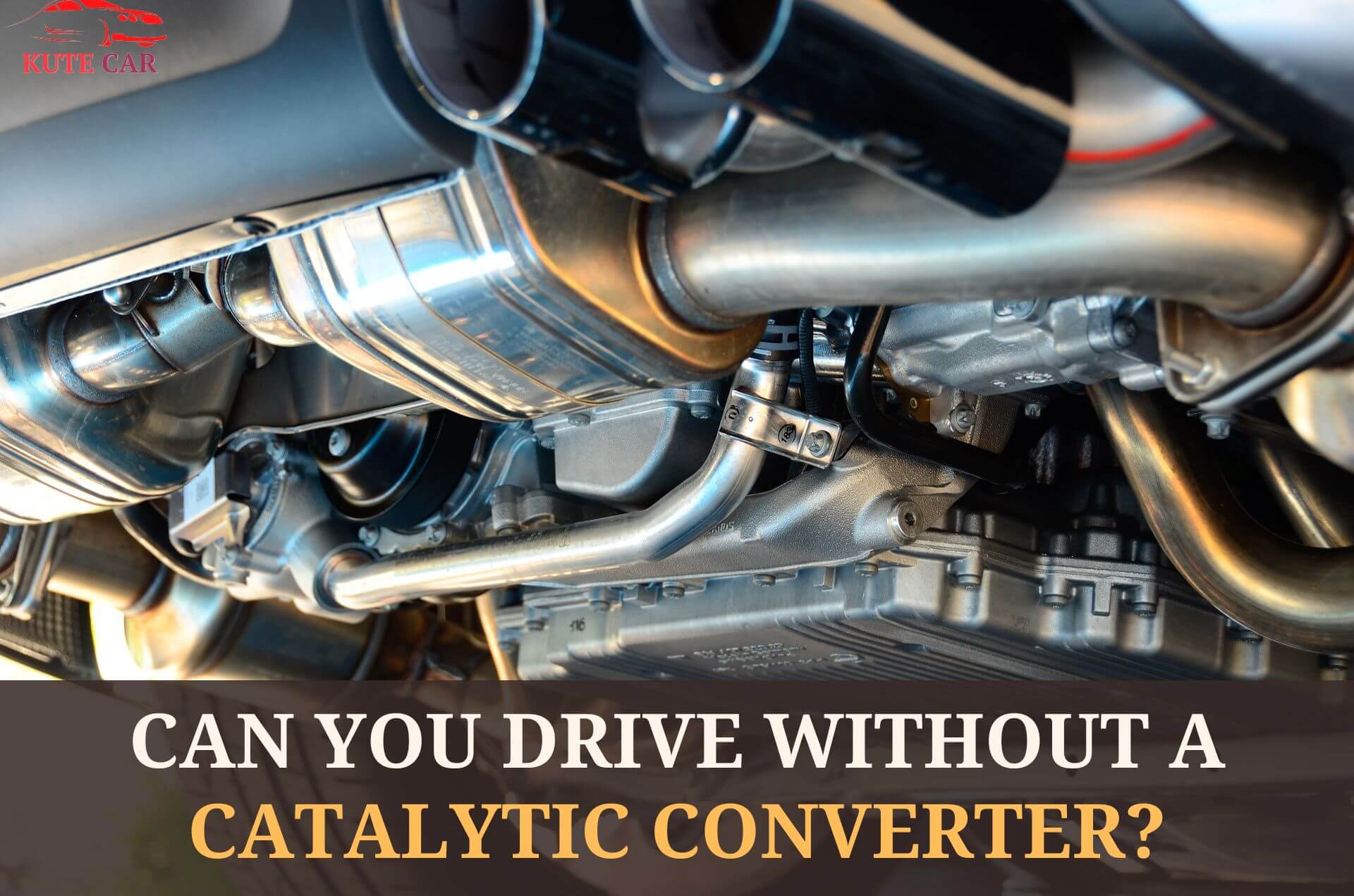Catalytic converters have become a standard feature in modern vehicles, serving as an essential component for reducing harmful emissions and protecting the environment. Can you drive without a catalytic converter? It’s a question many drivers are asking today.
While it may seem like a way to save money or increase performance, removing this emissions control device can have severe consequences, such as failing an emissions test or receiving a fine. In this blog post, we’ll cover the functions of catalytic converters, including how they function, their impact on the environment, and the potential risks and benefits of driving without one.

By the end of this post, you’ll have a comprehensive understanding of whether you can legally and safely drive without a catalytic converter. So keep reading to learn more!
What is a Catalytic Converter?
A catalytic converter is an emissions-controlling component of a vehicle’s exhaust system. It decreases harmful pollutants from the exhaust, such as hydrocarbons, carbon monoxide, and nitrogen oxides. The converter contains a precious metal catalyst, such as platinum or palladium, and allows for converting these pollutants into harmless substances.
Do I Need a Catalytic Converter?
Yes, you require a catalytic converter to drive your car. Catalytic converters are essential parts of your car’s emission control system and help reduce harmful pollutants from being released into the atmosphere.

Without a catalytic converter, your car will quickly become unable to start, as the vehicle’s computer system will detect the lack of a properly functioning emission control system. Emissions will be dangerously high, resulting in increased air pollution.
What are the Consequences of Driving without a Catalytic Converter?
Driving without a catalytic converter can lead to serious legal, environmental, and financial repercussions. Without a catalytic converter, your vehicle can produce harmful emissions. It is also not good for the environment and is illegal in most countries.
In addition, driving without a catalytic converter can harm your engine over time due to insufficient combustion of fuel and the resulting higher levels of pollutants. As a result, you can experience reduced engine performance, higher fuel consumption, and more frequent maintenance requirements.
How does a Car Sound without a Catalytic Converter?
The sound of a car without a catalytic converter is significantly different from one with one installed. Without a catalytic converter, the exhaust note will be louder and more pronounced due to the absence of the muffling effect of the converter. Overall, the car may experience enhanced back pressure in the exhaust system, leading to reduced engine performance.
Does removing the Catalytic Converter increase Fuel Consumption?
It’s important to note that removing a faulty catalytic converter can also reduce the overall power and performance of your vehicle, which can lead to an increase in fuel consumption.

In some areas, driving without a catalytic converter is illegal and can result in fines or other penalties. Additionally, the EPA states that vehicles with modified emissions systems may not pass emission tests and can’t be legally registered.
Pros
- It can improve performance, horsepower, faster acceleration, and vehicle responsiveness.
- It can reduce the thermal load on exhaust components, such as exhaust valves and exhaust manifolds, and can lead to the longer service life of these parts.
- It can also result in some reduction in weight, which can enhance the vehicle’s power-to-weight ratio and handling characteristics.
Cons
- The main disadvantage is the increase in harmful pollutants that are released into the atmosphere, such as carbon monoxide, nitrogen oxides, and hydrocarbons.
- It can also cause damage to the engine due to the increased levels of pollutants, which can lead to decreased engine life or even engine failure, more wear and tear and reduced performance.
- Pulling the catalytic converter can result in erroneous readings that can affect the vehicle’s execution, fuel economy, and emissions.
Conclusion
In conclusion, driving without a catalytic converter is not advisable. While you may be able to do it for a short period, the longer-term effects on your vehicle and the environment. A catalytic converter helps to reduce emissions from your car and is an essential part of your vehicle’s exhaust system. Without one, your car will run inefficiently and illegally. If you need to replace your catalytic converter, it’s best to speak to an experienced mechanic who can properly diagnose and repair the issue.
FAQ Regarding Can You Drive Without a Catalytic Converter
Q.1) Is it safe to remove the catalytic converter and drive without it?
While it’s possible to remove the catalytic converter and drive without it, doing so can be dangerous. Driving without a converter can increase pollution since the pollutants it helps to eliminate can be imperfect for both human health and the environment.
Q.2) Are there any benefits to driving without a catalytic converter?
While some people may think that removing the catalytic converter will increase performance or fuel efficiency, the truth is that it’s unlikely to make a significant difference. The drawbacks of driving without a catalytic converter typically outweigh any potential benefits.
Q.3) Can you replace a faulty catalytic converter with a straight pipe?
While it’s possible to replace a faulty catalytic converter with a straight pipe, doing so is not legal and can result in failing an emissions test or receiving a fine.
Q.4) Can removing a catalytic converter increase engine power?
In some cases, removing the catalytic converter can slightly increase engine power by reducing back pressure in the exhaust system. However, increased emissions and reduced fuel efficiency make it an unwise tradeoff.
Q.5) What are the signs of a failing catalytic converter?
Some signs of a failing catalytic converter include decreased engine performance, reduced fuel efficiency, a rotten egg smell from the exhaust, and failing an emissions test.




